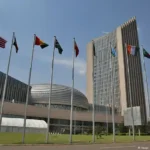By Emmanuella Anokam
In a bid to cut fuel cost, more motorists are converting their vehicles to Compressed Natural Gas (CNG).
The motorists urged the Federal Government to provide more CNG refilling stations across the country to ensure availability.
They spoke to the News Agency of Nigeria (NAN) on Sunday in Abuja.
The motorists allayed fears being entertained by many Nigerians on CNG, describing it as a cheaper, cleaner and safer fuel, costing N230 per Standard Cubic Meter (SCM).
NAN reports that the Presidential Compressed Natural Gas Initiative (P-CNGI) has been championing the transition to CNG as a cheaper, efficient and environmentally friendly alternative fuel since its establishment in 2023.
Many motorists had expressed scepticism and concern over the conversion of their fuel vehicles to CNG, in view of its high cost, lack of expertise, fear of damaging vehicles and limited infrastructure.
NAN checks at some CNG conversion workshops in the FCT saw queues of vehicles awaiting conversion, while some fuel stations currently witness queues by motorists for CNG refilling, indicating increase in CNG usage.
The P-CNGI had said that more than 190 conversion centres had been established, with 56 retail outlets dispensing CNG.
The aim, it said, was to increase the number to 500 conversion centres and more than 150 retail outlets by the end of the year.
The Nigerian Midstream and Downstream Petroleum Regulatory Authority (NMDPRA) also recently revealed that Nigeria’s CNG conversion capacity increased by more than 2,500 per cent in 2024, while refuelling capacity has risen from 20 to 56.
Speaking with NAN, Mr Moses Ibeh, a motorist, advised Nigerians to convert to CNG and save cost, adding that the only disadvantage was the space the cylinder will occupy in the trunk of the vehicle.
Ibeh urged the government, through the Nigerian National Petroleum Company Limited (NNPC Ltd.), to provide more CNG refilling stations to encourage motorists and ensure CNG availability.
“I was one of the people that had phobia for using gas to run anything engine. But the high cost of Premium Motor Spirit (PMS), also known as fuel made me to have a change of heart.
“I coordinate a Toyota Coaster bus for my office which is used to convey members of staff to work and take them back, and I use N90,000 to fuel it from Monday to Friday.
“We had an opportunity to convert to CNG, and as I speak to you, we use N17,000 to run the bus for the same five days we use N90,000 to buy fuel.
“Though, we still buy fuel of N30,000 as reserve, to supplement the CNG.
“All together, we now use N47,000 to run the bus for the five working days as against the initial N90,000. We now save N43,000 every week,” he said.
Another CNG user, Mr Abdul Ibrahim, also emphasised the need for NMDPRA to give licences to major oil marketers to provide CNG services in their fuel stations to ensure easy access.
Ibrahim said as many had begun using CNG vehicles, it would be necessary for more CNG infrastructure to be built across the country, to enable long distance motorists to access and refill their CNG vehicles while on transit.
This, he said, would equally crash the exorbitant transport fares being paid by long-distance commuters in view of the high price of PMS.
Mr Philip Joseph, an Uber Driver and ardent CNG user, described the CNG conversion and usage as the best and alternative fuel for transportation business.
Joseph said there was the need for motorists to install double cylinders because one 75 kg CNG cylinder does not have enough storage space to last for a motorist.
According to him, he queues at fuel station to refill his saloon car every two days due to single cylinder, while bigger vehicles refill every other day.
The P-CNGi is a component of the palliative intervention of the President Bola Tinubu administration directed at providing succour to the masses, occasioned by the transitive hardships of the fuel subsidy removal policy.
To ensure affordability, the P-CNGi rolled out three programmes namely – free conversion of mass transit vehicles, targeting one million by 2027, Ride-shares vehicles’ 50 per cent discount conversion and Credit Access for Light and Mobility (CALM) fund.
The CALM fund, being disbursed through the Nigerian Consumer Credit Corporation (CREDICORP) initiative, and could be accessed through www.credicorp.ng, is aimed at enabling loan for CNG conversions and solar energy.
NAN recalls that in response to the growing financial strain on Nigerians due to high energy and transportation costs, the Ministry of Finance Incorporated (MOFI), CREDICORP, and the P-CNGi in 2024 unveiled the fund. (NAN) (www.nannews.ng)
Edited by Ese E. Eniola Williams












